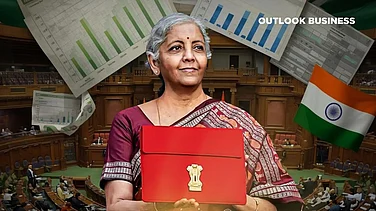Union Budget 2024 must prioritise sustainable worker welfare by operationalising the Code on Social Security 2020. The Government of India has the opportunity to utilise the announcement of Union Budget 2024 later this month to extend some of the existing social security schemes to gig and platform workers.
In 2020, parliament of India passed four labour codes by consolidating 44 labour laws in India as a much needed labour reform promising to balance the ease of doing business with the labour welfare. However, the labour codes are yet to be implemented. The new government should begin implementing the labour codes, at least the Code on Social Security (CoSS) with their first budget itself.
The Code on Social Security (CoSS) 2020 defines the gig and platform workers for the first time in India, and provides them legal access to the social security benefits. The code envisions an establishment of the National Social Security Board by the central government that would advise the government on framing relevant schemes.
Furthermore, a Social Security fund would be set-up to receive financial resources from central and state governments, workers as well as aggregators for the implementation of these schemes. Here, the aggregators may be stipulated to contribute 1-2 per cent of their turnover with an upper limit of 5 per cent of the actual amount received by the workers.
The funding mechanism seems to be better suited given the diversity among the two-sided, three-sided, and open protocol based platforms as compared to the transaction based levy recent state level legislation by the state of Rajasthan. The bill released by Karnataka in late June also seems to be exploring a transaction based levy.
Platform economy that facilitates the exchange of goods and services (such as cabs, food delivery, and personal services) through digital platforms is barely a decade old now. Yet, it has expanded multi-folds, and has provided a source of livelihoods to millions of workers across the nation. The social security of workers is of utmost importance, and access must be provided to them as soon as possible. According to ILO, less than only 24.4% people in India are covered by at least one social security benefit. Thus, there is also a need to increase the overall social security coverage in India.
The Need and The Current Scenario
As per the CoSS 2020, gig and platform workers are not the employees of the platforms with which they engage.Thus, they are not eligible for the standard social security benefits associated with the employment such as provident fund, health cover, pensions, and term life cover. According to India Employment Report 2024 by International Labour Organisation, nearly 90 per cent of the workforce is informally employed. Thus, 90% of the workforce is not getting the employment linked social security benefits.
According to the NITI Aayog, there were 7.7 million gig workers in India in 2019-20. There are several social security schemes in India that covers benefits such as Health Protection (Aayushmann Bharat), Old-Age Protection (PM Shram Maan Dhan Yojana), Accidental Cover (PM Suraksha Bima Yojana), and Term Life Cover (PM Jeewan Jyoti Yojana). Some of these schemes have limited reach due to the lack of awareness, and financial affordability. These four schemes have a potential to become a bundled set of benefits for the platform workers, and linked to E-Shram’s UAN (Unique Account Number).
The government could extend the benefits of these social security schemes to the gig and platform workers through the Union Budget 2024. Government could then set-up the Social Security Fund as mentioned in CoSS 2020 for getting financial contributions from the platform businesses to offset the costs associated with the extension of these social securities. The cost to the government for the extension of these bundled benefits is estimated to be less than Rs. 3000 per worker per year.
The recent research report by OMI Foundation shows that the aggregators in India are providing certain social security benefits to the platform workers of which accidental cover is the most common benefit across sectors. With the large inter-platform, and inter-sector variations, other benefits include term life cover, medical benefits, menstrual leaves, etc. The old age cover is absent due to the transient nature of the platform work. Thus, there is a need for an overarching continuity, and uniformity of the benefits across the sectors, and the platforms. This can be attained through the adaptation and extension of four government social security schemes mentioned above to the workers.
The social security benefits through the central government could provide a continuous cover to the migrant workers irrespective of their state of their birth, and state of their work. The standard social security benefits could also provide continuous benefits even if the worker switches the aggregator he/she engages with.
Linkage with E-Shram Registration
In 2021, the government of India launched e-shram as a national database of the unorganised workers, gig workers, and platform workers. One of the aims of the e-shram was to improve the efficiency of the social security benefits. Every registered worker gets a unique ID (called UAN number) on the e-shram portal. Since then, overall 29.5 crores of workers have been registered on e-shram (as on March 2024).
The government of India could provide a bundled benefit of four social security schemes to all the registered gig and platform workers in India. This may require some inter-ministerial coordination as different social security schemes are being managed by different ministries.
Today, operationalising CoSS 2020 is an urgent need to maximise worker welfare and promote ease of doing business in the country. Extension of existing social security schemes to platform workers can be the first decisive step in this direction. This way, the government could provide basic, but portable social security benefits to millions of workers, and overall improve India’s social security coverage. The Social Security Fund established through the CoSS 2020 can help in funding this initiative and deliver effective and sustainable welfare to the platform workers.
(Author is Lead Centre for Inclusive Mobility, OMI Foundation.Views expressed here are personal)

























